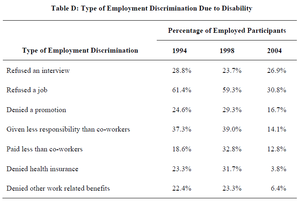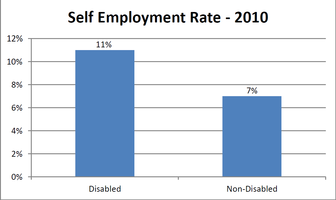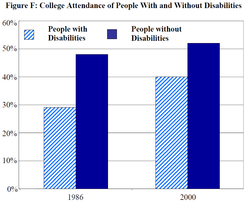"Disabled people are not unable. With all the challenges facing our country we cannot afford to ignore the talent of the disabled or the neglect the skills they have to offer."
Senator Edward M. Kennedy - September 7, 1989
Senator Edward M. Kennedy - September 7, 1989
Economic Impact
Beginning in the mid 90's, the disabled slowly began entering the workforce. Their newfound acceptance in society and unstable job market spurred many towards entrepreneurship. Additionally, higher education for the disabled opened more opportunities and on-the-job discrimination decreased.
Jobs
|
|
Self Employment
|
"After nearly two years of working in segregated employment [making $2.50 per hour], I had a really bad day and chose to quit... and decided I would start a coffee shop... I’m making a profit and projected to have a stable income in the future."
Emilea Hillman, Disabled Entrepreneur - July 13, 2012 |
|
|
Higher Education
|
"...I definitely believe that people with disabilities are getting education at higher levels and that is helping them [in employment], but one thing that is really sad is that individuals with disabilities have to get a higher education in order to get a job, whereas people without disabilities may be able to get one without a degree."
Josie Badger, Personal Interview - March 17, 2013 |






